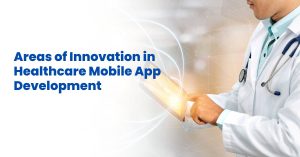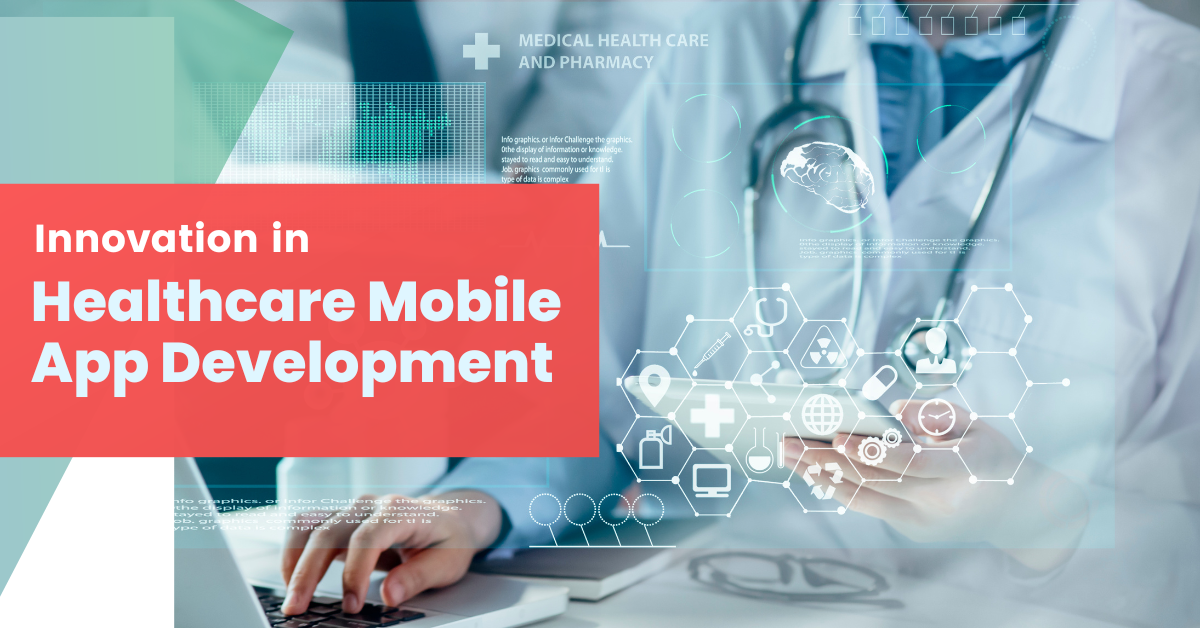The healthcare industry is one of the most rapidly changing and constantly evolving industries out there. To meet the needs of patients and doctors alike, mobile app developers have to be on the cutting edge of the latest trends and technologies. In this article, we’ll take a look at some of the latest innovation in healthcare mobile app development so that you can be sure your app is up-to-date.
Benefits of Mobile Health Apps
Healthcare mobile apps can improve patient care by providing easy access to information and tools, and they can also help save time and money. Here are some of the top benefits of healthcare mobile apps:
1. Easy Access to Information: Mobile apps can give patients and doctors easy access to important information. For example, an app can be used to store medical records or to look up information about medications.
2. Improved Patient Care: Healthcare mobile apps can help improve patient care by providing easy access to information and tools. For example, an app can be used to track a patient’s progress or to remind them of appointments.
3. Save Time and Money: Healthcare mobile apps can save time and money by streamlining processes. For example, an app can be used to schedule appointments or to process insurance claims.
4. Increased engagement: Mobile apps can increase patient engagement by providing a convenient way for patients to access their health information. Patients who are engaged in their care are more likely to stick with their treatment plan and make healthy choices.
5. Improved communication: Healthcare mobile apps can improve communication between patients and doctors. For example, an app can be used for remote monitoring of patients by doctors, one-to-one video communication etc.
Factors Accelerating Healthcare app Innovation

Let’s explore some of the factors that are driving healthcare app innovation.
Rise in smartphone usage
There’s no denying that smartphones have become a staple in our lives. We use them for everything from keeping in touch with family and friends to managing our finances and entertainment. It’s no surprise then that healthcare app innovation is on the rise, driven in part by the increasing use of smartphones.
Healthcare apps offer a convenient way for patients to manage their health and wellness. They can be used to track medical appointments, medications, and fitness goals. They can also provide educational information about conditions and treatments.
Need for better self-management tools
Self-management tools can help patients to better manage their health by providing them with information and support to make healthy choices. They can also help to reduce the number of visits to the doctor, hospital, or other health care providers.
There are many different types of apps available, and new ones are being developed all the time. Some of the most popular apps focus on diet and exercise, medication management, and tracking vital signs.
Focus on preventive care
There are many factors that are driving healthcare app innovation, but one of the most important is the focus on preventive care. With so much emphasis on chronic disease management and treatment, it’s easy to forget that much of healthcare is about preventing illness and injury in the first place.
But apps are changing that, by making it easier than ever to track our health data and receive personalized guidance on how to stay healthy. We can now use apps to monitor our diet, physical activity, sleep, and stress levels, as well as a host of other health metrics. And thanks to machine learning and artificial intelligence, these apps are getting better and better at giving us the information we need to make healthy choices.
Growth of the digital health market
The healthcare app market is growing rapidly, with new companies and products entering the market every day. As more people adopt smartphones and other mobile devices, they are increasingly using them to access healthcare information and services.
Finally, the rising cost of healthcare is driving demand for affordable and convenient health solutions. This is leading to increased investment in healthcare app development. As a result, we are likely to see even more innovation in the healthcare app market in the years to come.
Most Significant Areas of Innovation in Healthcare Mobile App Development

Today, healthcare mobile app development is one of the most significant areas of innovation in the healthcare industry. With the rapid growth of mobile technology, more and more healthcare providers are turning to mobile apps to improve patient care and increase efficiency.
There are many different types of healthcare mobile apps available today, from appointment scheduling and reminders to fitness and diet tracking. Let’s look at some of the most popular and innovative healthcare mobile apps on the market today.
AI-Powered Chat Bots
We are now in an age where artificial intelligence (AI) is becoming more and more prevalent in our everyday lives. And healthcare is no exception. AI-powered chatbots are being developed to help patients and providers alike.
One of the most significant advantages of chatbots is their ability to improve communication between patients and providers. They can help reduce wait times, provide timely reminders, and even offer educational information.
What’s more, chatbots are constantly learning and evolving. As they become more sophisticated, they will be able to handle more complex tasks and queries. This will ultimately lead to a better overall experience for everyone involved.
Blockchain Systems
There’s no doubt that blockchain technology has the potential to revolutionize healthcare. By creating a decentralized, secure system for storing and sharing data, blockchain could help streamline clinical research, reduce medical errors, and improve patient care.
Several startups are already working on blockchain-based healthcare solutions. One example is MediBloc, which is developing a platform that will allow patients to control and share their health data. With MediBloc, patients will be able to choose which doctors and researchers can access their data, and they’ll be compensated for sharing it.
Another company, Patientory, is working on a blockchain-based platform that will store patients’ health information securely. The company plans to use smart contracts to ensure that only authorized users can access the data.
These are just two examples of the many innovative ways that blockchain could be used in healthcare. As technology continues to develop, we can expect to see even more interesting and impactful applications emerge.
Internet of Medical Things (IoMT)
There’s no doubt that the healthcare industry is in the midst of a digital transformation. One of the most significant areas of innovation in healthcare mobile app development is the internet of medical things (IoMT). IoMT refers to the interconnectedness of devices and sensors that collect and share data about patients’ health.
IoMT has the potential to transform the way we deliver care, making it more patient-centered, data-driven, and efficient.
The possibilities are endless, and IoMT is already starting to change the way we think about healthcare. With the help of mobile apps, IoMT has the potential to make healthcare more accessible, affordable, and effective for everyone involved.
Big Data & Predictive Analytics
In recent years, there has been an explosion in the amount of data available to healthcare organizations. This data comes from a variety of sources, including electronic health records, wearables, and clinical trials.
Healthcare mobile apps can help with this by providing a way to collect and analyze data. There are a number of different ways that apps can do this, including through the use of machine learning.
Another way that healthcare mobile apps can help with big data is by providing a way for patients to share their own data. Patients are increasingly willing to share their data if they feel it will be used to improve their care.
Finally, healthcare mobile apps can help with big data by providing a way for researchers to access data. Researchers can also use this data to test hypotheses about how different treatments might work.
Augmented Reality and Virtual Reality (AR/VR)

The healthcare industry is quickly embracing augmented reality (AR) and virtual reality (VR) technology. These immersive technologies have the potential to revolutionize healthcare, from how medical professionals are trained to how treatments are delivered. Here are some of the most significant areas of innovation in healthcare AR/VR:
- Medical Training: AR and VR can be used to provide realistic, hands-on training for medical students and residents. Medical schools are already using VR simulations to teach anatomy and surgery. In the future, VR will be used increasingly to train medical professionals in a variety of specialties.
Conclusion: Are You Future Ready?
Healthcare app development is an exciting and rapidly growing field. With the ever-increasing capabilities of technology, there are endless possibilities for new and innovative healthcare apps. From apps that allow patients to book appointments and track their health data, to apps that provide doctors with real-time patient information, the potential for healthcare app development is vast.
As we continue to see advancements in technology, it is clear that healthcare app development will continue to grow and evolve. This is an exciting time for both patients and healthcare providers alike, as we move towards a future where apps can truly revolutionize the way we receive and deliver care.
Looking to hire healthcare app developers with profound expertise? Comment down your requirements and we will get you the best options.













